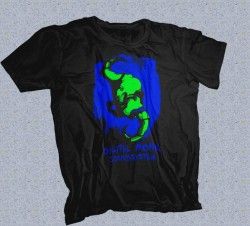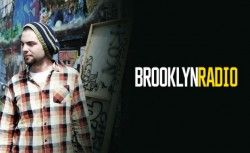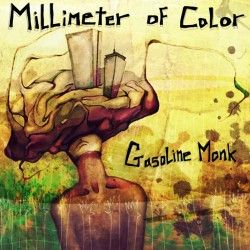
Kool Keith is the legendary rapper who invented Horrorcore and was the first to bring hip-hop into a Sci-Fi, paranormal state. He is a truly strange, one-of-a-kind artist. In honor of him coming to Boston’s Middle East this Sunday, we bring you this interview where Keith describes his evolution since Ultramagnetic MC’s.
Originally Published on WaxPoetics.com 10/23/09
Talk about your very first involvement with hip-hop.
I used to hang out in the Bronx, so I’d go to parties and see Jazzy Jay and Red Alert and check out Nation of Zulu parties all the time. I never did rap really. I didn’t rap ’cause everyone else was doing it. I remember DMC was out, and I still didn’t want to be a rapper. [laughs] I started off as a b-boy, a dancer. Then eventually I turned to rapping.
How did you and Ced Gee meet? What were those pre-Ultramagnetic days like?
I met Ced Gee in high school; we both went to Clinton. At lunchtime, we had big radios and would walk around with ’em. At the time, rap was just like something we liked but didn’t really participate in. Then one day, our friend [Almighty] Kay Gee told me that he was gonna try out for Cold Crush Brothers. Then he came back and told us he made it! Then [Grandmaster] Caz, and Kay, and Easy A.D. became Cold Crush, and we flipped out! That’s when I decided I could probably do this rap thing too!
So one day, Ced and I went to this place his brother, Pat, chilled at. Pat made beats and they called themselves Mastermind Productions. They had mics and equipment and all that stuff, so a lot of things started up there. KRS [One] even made tracks up there with his early group called the Celebrity Three.
So when I was up there, I saw what they were doing and thought I could make music too. Ced’s mom bought us a SP-1200, and that’s when I began getting into music and rapping. That’s how things started.
How did Ultramag form? What’s the story behind that?
I wanted to do a solo album, but Pat said we should be a duo first before branching off into solo stuff. There wasn’t animosity or anything. A couple days later, we just brought beats we made on the SP to the studio and made a demo. We pressed one single and that was the beginning.
I said we should do one album together, and we should call ourselves Ultramagnetic. It was Moe, Ced, and me. Moe was Ced’s cousin. Trevor [Randolph, aka TR Love] came in way later. We went to all kinds of labels and record companies, independent and majors. Everyone turned us down. Then Eddie [O’Loughlin] signed us to Next Plateau.
What stands out in your mind about the making of Critical Beatdown?
It was recorded at a time when we were just having fun. We’d get a pizza and get on the F-train and go way out to Queens to record. At the time, I think we got $30,000 to cut the record! That was big for us then. On Critical Beatdown, we were using stuff we thought was real different.
Do you remember working with Paul C on the record? What impression did he make on you?
Paul C was always very mindful of vocals. I mean, he knew his stuff production-wise and how certain sounds should sound. He was a corrective critic of us, and because of him, I’ve always paid attention to how I pronounce my words to make sure they sound right and stuff.
What do you think of Critical Beatdown when you hear it years later? Did you come off as advanced as you hoped?
Before us, everything was old school. We felt like we came out during a middle time. I mean, UTFO and Fat Boys and all that stuff on Def Jam was already out before us. Rap was still at a time of “yes yes y’all” and “to the beat y’all.”
We came out right after Treacherous Three, and we thought they were really dope. It was like they were using lyrics as a weapon! And then T La Rock took it to a new level! It was the first time rap was really getting lyrical, rather than repetitive speech and chants. We were glad rap evolved, and we came out in the age of the big words, and everyone was trying to be next level. Special K was intelligent too, but we wanted to be lyrical and be from outer space!
We were like a ghetto group from the projects rapping about being from the future, that’s why we thought it was so funny! In a way, we were living out our fantasies. People thought we were trying to be abstract, but we were just having fun, using different patterns and stuff. We were the masters of that.
So you’ve always had varying styles and patterns, and your style has totally changed through the years. Is this something that happened naturally or do you try to spit differently each time?
As I got older, I grew, so naturally my lyrics progressed too. My words probably got clearer and I realized that, as my career developed, I have more freedom of speech to say whatever I want. I bugged out more with time, I suppose.
I’m always trying to say things that haven’t been said before. I never think I’m at my peak; I’m always trying to go beyond myself. My cadence has been able to adapt through several generations. All rappers have different cadences, but a lot of cats that came up during my time haven’t advanced. And I didn’t have to progress or change that much because I was already ahead of my time. A lot of these cats are living off their old records and can’t rhyme with the new rappers out right now. A lot of these guys are stuck in time.
What’s your writing method like?
I construct songs very seriously, even though it might sound like I’m just goofing off. A lot of people make records by working with producers they know nothing about and just get beats to spit over. But I’ve always told [KutMasta] Kurt and other producers I’ve worked with to match their tone with my lyrics.
You’ve worked with so many different producers through the years. How have those experiences struck you as a rapper?
If you just got off the plane from 42nd Street with crazy people yelling at you, and bums on the streets, and piss-filled elevators, and people upset, and traffic, and all that mess, your style isn’t gonna mesh with a producer who’s from a sunny meadow. Some of these producers’ beats won’t match what your vibe is, because they made the beats in their beautiful backyard, with a horse in their garden and poodles running around, and they can’t have the same feelings as a rapper from a different part of the country. They tend to make records in their environment and think rappers can just jump on the track. I don’t want to rap over a fluffy beat from a producer who just picked flowers from his garden. [laughs] So at times, it’s been difficult in that way.
Let’s discuss some of your celebrated projects. How did you meet Godfather Don and how did the Cenobites come about?
That was a project that Bobbito put together. Godfather Don was in his prime right there and was real sharp. Every afternoon, we’d go to Brooklyn and Don had this two-track tape, and we’d run the reel, and [we] just made the record. Godfather Don had these jazzy beats that sounded sinister and dark, and even a little gangsta. I’m not into jazz so much myself, but Don made it funky. It was like how Pete Rock would take jazz and hype it up. Percee P came through too. He was a good guy and was way under the radar still. A lot of people noticed him through Cenobites, which is great, because I’ve always felt Percee was a great rapper.
Discuss Dr. Octagon and the process of making it. What were all the reported conflicts with Dan the Automator about?
It was a great project. Automator and me were friends at the time and made a great record together. I think everything turned sour once the business side of things and his manager got involved. Automator and I were friends before the business, and when the business came in, it brought out a lot of bad feelings. I mean, when you have meetings with major companies and I’m not there, even though I’m a major star of the record, that’s just wrong. And I guessed I missed some dates on my end too. I think I missed a Lollapalooza gig for some reason, and that made them mad.
Other than that, it’s a legendary record that was successful, and I’m proud of it. Automator and I were great friends, which is why the record turned out so great. All that’s over now, and the project is one of my best works.
Touch on Sex Style a bit and what your head was like when making it.
It was on Capitol Records and was one of my first experiences in California. I was living the life, because it was all sun and stars. I was hangin’ with porno stars all the time on Sunset Blvd. I was just freaked out! It was such a fun L.A. summer.
I had the freedom to make whatever I wanted, so I was on a mission to capture my mind state at the time. I didn’t care about anything. I took a lot of those pictures you see on the sleeve myself—even the one on the back cover where I’m wearing a top hat and underwear. I was just on some wild shit because I was given the green light. I was just being sexually free. I was taking pictures of me in my underwear on all the time! Sex Style was actually my life then. I wore pink Speedos and ate Corn Pops in my kitchen. It was crazy.
Then you followed that up with Black Elvis/Lost in Space. What was your motivation for that record?
It was my whole transition into a rock star. I wanted to be the Black Elvis of rap. I felt like I was the Black Elvis Presley of rap because even White girls were into my shit! Columbia thought it was a joke, but I was serious. The press took it as a joke too. Diddy calls himself the Black Sinatra. If he can do that, than I can be Black Elvis. I think it’s a great album.
Then Dr. Dooom came out next, and you decided to kill off your Dr. Octagon persona. Talk about the project and the Dr. Dooom character.
It really had nothing to do with Octagon; it had more to do with Black Elvis. The reason I made Dr. Dooom was because Columbia kept pushing Black Elvis back, so I made Dr. Dooom as a response. Fuck Columbia. I just wanted to put something out. I made it weird and mean because that’s how I was feeling then. Waiting on the music industry makes you strange. The patience and lack of it pissed me off. So I whipped up Dr. Dooom and went into dark, rugged beats with flipped-out feelings. I just went into character mode and the album was a reflection of people holding back the project for no reason.
Although you’re known as a rapper, you’ve also had your hands in a lot of production. Was there a reason, besides being able to rap well, that made you not stick to producing?
Well, I did stuff on the Ultramag records and I’ve always played keyboards on a lot of my songs too. I also did a lot of production work on Funk Your Head Up. At the time, I didn’t know how to program well, so I had Mark Live program mostly, and I would sprinkle stuff over it. But once Pro Tools came out, I’d just do everything through my keyboard and learned how to put everything together. I mean, I’ve programmed drums on my records before too.
I’ve worked with lots of dope producers before, but there’s nothing like making a beat for yourself and rapping over it. I can see why that would be a turn-off, because rappers do make wack beats. But that’s the only way to make exactly what you, the rapper, need.
Speaking of great producers, how was working with Prince Paul?
I just did “Weapon World” with Paul. It was just another stop in my career. We were professional, and it was a one-time gig. He was great, and is legendary, so I’m glad we connected, and I think the track reflects that. But I’ve worked with rock bands, different DJs, producers, and all kids of folks before. Paul just happened to be one of ’em.
You’re more level-headed than most people would imagine. Were you really locked up for psychiatric issues at Bellevue Hospital? Once and for all, what’s the story behind that?
They always said I went crazy! [laughs] Here’s the straight story: I did a press day when I was signed with Mercury. And all they gave us was water, which I was drinking all day long. I was so tired of doing press and hungry since all I had was water for hours and hours. Well, all these journalists came in for press day for Ultramag’s Funk Your Head Up. We had about fifty interviews to do for the entire day! And everyone kept asking the same question over and over: When did you do this and when did you do that? What made you Kool Keith? It became very repetitious.
So I was tired and was messing around with Ced just to make him laugh. I told this one reporter that I went crazy and was sent to Bellevue Mental Hospital. I told him I tried to eat my own hand and that they had to stop me! Ced was holding his stomach because he was laughing so hard—so I thought the dude would know it was a joke! It was a European dude, and years later, I pick up and read about how mentally crazy I was. This European cat’s magazine was referenced in the article saying I was a “former mental patient” and stuff. So I thought, “Wow, this would be great press!” And the publicists were like, “This would be great press!” So I just took it and ran with it.
Thanks for addressing that. I didn’t want to offend you if in fact you did have psychological issues.
Nah, I just think it’s funny. People look at Stephen King, and Vincent Price, or Bela Lugosi, and think they’re artists who make crazy movies. But when I rap about being crazy and doing dark things, everyone’s quick to believe that I’m really that way. The story just traveled. I ain’t crazy. But maybe I am. [laughs]
http://www.waxpoetics.com/features/articles/black-elvis-is-in-the-building















